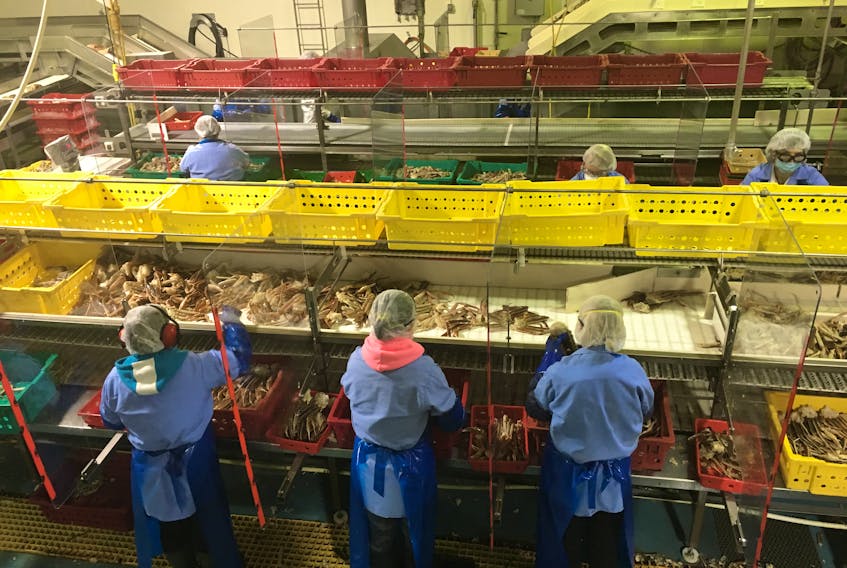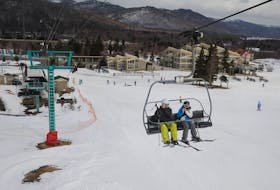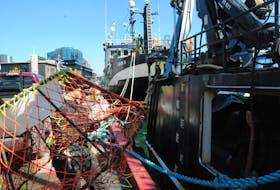In a fishing season fraught with stress and strife from the start, another war of words has flared up between the Fish Food and Allied Workers (FFAW-Unifor) and the Association of Seafood Processors (ASP)
It stems from a press release issued early Wednesday by the FFAW, challenged fish processors in Newfoundland and Labrador to pay workers an extra $3 per hour, retroactive to the start of the 2020 season.
The union contends that since processing companies are eligible for the federal government’s 75 per cent wage subsidy for companies affected by COVID-19, they shoud pass some of that benefit on to the workers.
“Plant workers and other fishery workers such as dockside monitors and offloaders are facing reduced work due to a late start to the season and a potential reduction in work this year,” the FFAW stated in its press release. “They are also being asked to risk their health and safety and that of their families with no increase in compensation while the companies that employ them can take advantage of the financial benefits of government funding and low fish prices.”

“We’ve already seen other industries like supermarkets compensate their workers and it’s time the processing companies. . .stepped up to do the same,” said Keith Sullivan, FFAW-Unifor president, in the press release.
The union alleges that because of significantly reduced prices paid to harvesters and federal funding, the companies are reaping the financial benefits of the COVID-19 pandemic while their employees lose out.
The processors' group calls the union comments irresponsible.
Derek Butler, executive director for the assocaition, stated in a press release: “While it is an individual decision for each company, fish prices are down, sales are down, revenues are down, and costs related to making our plants safe are up.
“No one is reaping the benefits of COVID-19,” said Butler, adding it is “offensvie” for the union to suggest such a thing.
He also said it is his understanding that the federal government’s wage subsidy program would not provide for wage increases, but would only subsidize wages based on previous rates paid to workers.

The FFAW told SaltWire wages for unionized plant workers in the province range from $13-$19 per hour for production, and $20-$29 for maintenance. The union says there are from 3,500-4,000 unionized fish plant workers Newfoundland and Labrador. Butler in turn said there are about 6,000 plant workers in the province, averaging about $15 an hour.
The FFAW said it is asking for the $3 per hour increase for all workers, unionized and non-unionized. They did not have any information on the number of non-union plant workers in NL, but said government data shows some workers in non-union plants are being paid minimum wage.
The acrimony between the FFAW and the ASP is evident in the press releases.
Butler said if anyone is milking COVID-19 for political gain “to delay fisheries to scare plant workers. . . it’s the FFAW.
He noted the union has issued more than 170 press releases since mid-March, “blaming everyone else for the challenges in the fishery this year but assuming no responsibility.”
Noting the union’s point on dockside monitors, Butler said those workers are paid by the FFAW.
“That’s a union company. If they have ability to increase their wage just go ahead. But they’ll have to explain that to harvesters. That’s who pays that bill.”
Butler challenged the union to do its own part to help its members during COVID-19, by taking a look at its own finances.
“FFAW members should … be asking the FFAW to cut costs, and to reduce the dues it charges,” Butler suggested.
Meanwhile, the FFAW is still awaiting news from Ottawa on whether or not the federal government will deliver a compensation package for plant worker who may not get enough work, or any work, this season due to COVID-19.
Twitter: @BarbDeanSimmons









